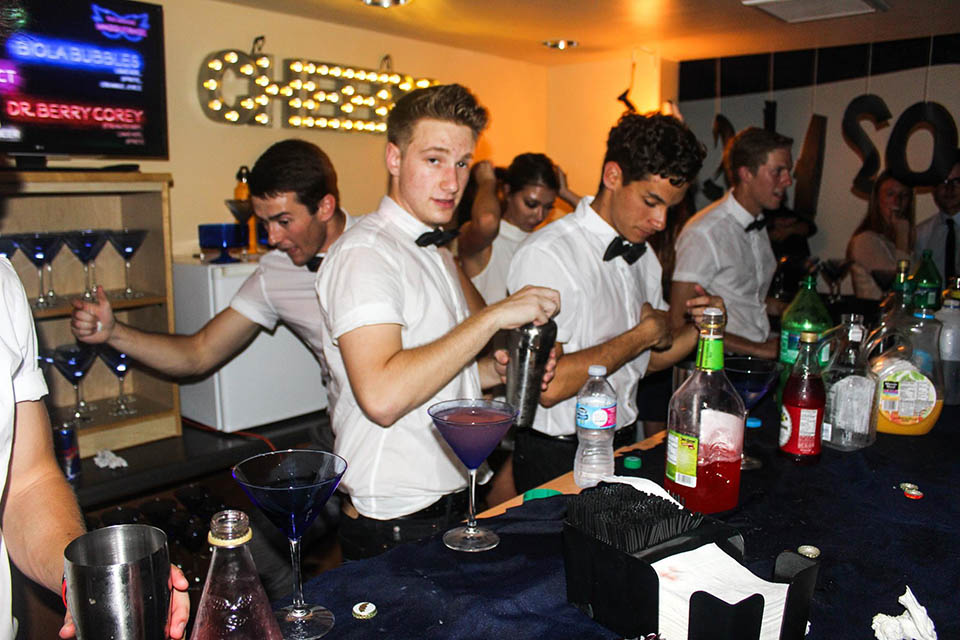Horton’s second floor, Mosaic, will open its doors to host their annual Mosaic Masquerade this Saturday, April 8. While the formal event still has the community drumming their fingers in eager anticipation, there will be one timeless item missing from the snack table this year. The nectarous mocktail did not have time to take a final bow before Student Development made the controversial decision to ban it from the evening festivities, due to its representation of the alcoholic beverage, which is both against contract and unwelcome on Biola’s campus. Do these sugary drinks deserve time behind bars or were they falsely accused?
up to the student
For those who are curious, a mocktail is nothing more than a mixture of fruit juice and soda. If you are in an especially austere mood, you may even serve it in a cute, little martini glass. But let us not stray into the realm of festive glassware.
The mocktail does in fact “replace” the cocktail for those who are underage or living on Biola’s dry campus. However, while it may represent a twist on an alcoholic drink, it does not spawn the evils of alcohol any more than a bowl of gummy bears may produce gluttony, especially when placed within the context of a light social gathering where even un-choreographed dancing takes place. If these drinks were presented at a middle school party, then that might be a different story, not to mention a little odd. These mocktails are offered at Masquerade to a group of adult college students — those of which have been educated on the illegality of underage drinking and fully understand the consequences.
The desire to protect underage students is admirable, but when you ban a cup of orange juice mixed with Sprite, it becomes excessive. There comes a point where it is up to the student to act as an individual and to choose to follow Christ in their own hearts.
simply a clever name
There are several instances where alcohol — most often wine — is mentioned in the Bible. In the gospel of John, Jesus turned water into wine. In 1 Timothy, Paul suggests a small glass of wine to help the stomach. Clearly, alcohol itself is not sinful — only the abuse of it produced by the sin in our own hearts. If the goal was to portray drunkenness by drinking the mocktails, then that would be a problem.
But clearly, that is not the goal.
In fact, the whole point of the name mocktail emphasizes the fact that students are not drinking alcohol. Mocktails were not offered at the masquerade as a means to perpetuate the temptation of underage drinking, but rather to emphasize the fact that students can have fun without alcohol.
By consuming mocktails, students are not attempting to create the illusion of illegal drinking. The mocktail was simply a clever name for a minor-friendly party drink. For Christians, the aim is to follow God’s desires and plans. It seems clear the consumption of a mocktail would not prevent students from doing so.







